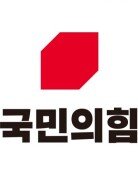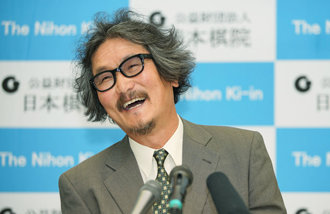Laundering one`s past
The Truth and Reconciliation Commission concluded in 2010 that the anti-state spy ring incident in 1975 was fabricated. Korean-Japanese students implicated in the incident were found guilty at the time. Kang Jong-heon, who was sentenced to death for his involvement but released after serving prison time, has requested a retrial and pleaded not guilty. In the April 11 general elections, he was 18th on the list of proportional representation candidates for the minor opposition United Progressive Party. In the retrial hearing Thursday, Kim Hyeon-jang, who was sentenced to death for his involvement in the 1982 firebombing of the U.S. Culture Center in Busan and became a close friend of Kang in prison, testified as a witness. Kim told Kang in court, Go back to North Korea and play your role.
In a June 4 interview with The Dong-A Ilbo, Kim said Kang told him that he was a leading member of the Norths ruling Workers Party and trained as a spy in the North. To a lower court, I told of his crime of using the court as a place of propaganda, but changed my strategy in a high court and claimed the incident was fabricated through torture, Kang said in prison. His statement contains concrete circumstantial evidence. The retrial judges must check if prosecutors employed force and verify Kangs suspicious past whereabouts.
The truth commission and the Commission for Democratization Movement Activists` Honor-Restoration and Compensation have been established to clear the names of and seek compensation for those who stood up to former authoritarian governments. Contrary to their original purposes, however, the commissions have exonerated pro-North Korea figures and given them taxpayers money. The organizations have also recognized spies who set up an anti-stage espionage group Wangjaesan to leak South Korean military secrets to the North and those related to the Democratic Revolution Party, which was deemed an anti-state organization established to incite national upheaval by a court, as national men of merit. A large number of those who turned into pro-democracy activists according to the commissions are attempting to launder their pasts by requesting retrials.
More than half of lawmakers from the progressive party are being criticized for their pro-North Korea inclinations. In particular, pro-North figures who espoused Pyongyang`s juche (self-reliance) ideology in the 1980s, have occupied the partys largest faction. Under authoritarian governments, discerning pro-North forces from democracy activists was difficult since the two groups were mixed with each other. This is no longer the case, however, because South Korea has become a democracy. Under dictatorship, violations of the National Security Law were more often than not exaggerated and manipulated, but many genuine transgressions of national security did occur. The judiciary must not be swayed by temporary administrative commissions.
Editorial Writer Lee Hyeong-sam (hans@donga.com)







